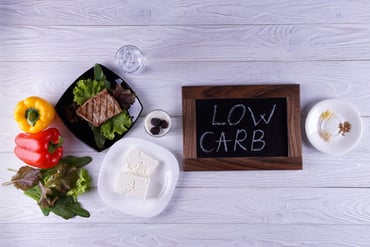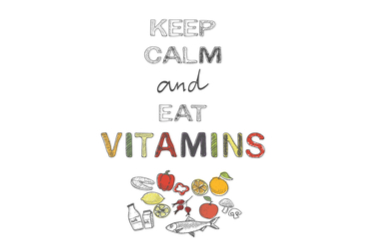Get the Facts: Vegetarian/ Vegan Sports Nutrition
With the increasing popularity of boutique gyms that have provide intense training, high performance sports aren’t exclusive for elite athletes anymore. But unfortunately not all of us can have personal nutritionists and chefs creating unique meals that can boost your athletic performance and recovery. Vegans and vegetarians especially, might feel like they’re falling short due to diet related issues. If this sounds like you, then here are a few things to keep in mind.
Am I eating enough?
The amount of energy (ie. calories) you need depends greatly on body composition, sex, type of sport, and how vigorous training levels are. For example, strength or power athletes might tend to eat more in order to build lean muscle mass, while endurance runners or cyclists may eat enough just to make up for calories burnt from exercise in order to maintain a lower body weight (Position Paper, 2016). Regardless of what your energy requirements are, vegetarians and vegans may find it more difficult to consume enough calories, because their diets tend to be lower in calorie-dense foods. If you find that yourself hungry often, or often feeling fatigued after a workout, carrying snacks with you throughout the day could help. Mixed nuts, dried fruit, healthy trail mixes, whole grain crackers, and cheese (for vegetarians) are all good options. Another method of boosting energy intake is to drink your calories! For example, a smoothie made out of frozen whole fruits (and/or veg) plus a soy/coconut/dairy milk or yogurt base is something you could drink throughout the day. Add some wheat germ or ground flax seed for a fiber boost!
Carbohydrates
As we mentioned in the Sports Nutrition: Carbs blog post, carbohydrates are our body’s main source of energy during exercise. The good news for athletes is that a vegetarian/ vegan diet is comparatively higher in carbs, which could give you greater endurance fro muscle glycogen stores. However, it’s worth paying extra attention to the type of carbs you’re eating before exercising, as high fibre foods (including most fruits and veggies) may increase the chances of gastrointestinal problems during exercise, especially when paired with the nerves during a competition or event.
Protein
In the Sports Nutrition: Protein blog post, we had already said that an average healthy adult would require about 1 – 1.2g of protein per kg of bodyweight per day, and a weight training athlete would probably want as much as 1.5 – 2g/kg/day. While this is absolutely true for most people, vegetarians and vegans actually need to increase their protein by another 10% or so, to 1.3 – 2.2g/kg/day (Dietitians of Canada, 2013). This is because our bodies can’t digest and absorb plant proteins as well as animal proteins. On top of that, certain plant proteins might have lower levels in one of the 20 amino acids, which are the building blocks of proteins (for example, legumes tend to be lower in the methionine amino acid). So it’s important to eat from a variety of sources, rather than relying solely on tofu or peanuts for protein. Aim to eat a mix of tofu/ soy products, seeds, lentils, whole grains, mixed nuts, and even faux meats
Vitamins and Minerals
Vitamin B12:
Although this is not specific to athletes, it’s worth reiterating that vitamin B12 is essential for our bodies function, but we can only get it from animal sources. If you don’t eat eggs or dairy products, it important to take a dietary supplement or eat B12 fortified foods.
Iron:
Iron is an especially important for athletes because it helps maintain muscle function and can reduce fatigue during recovering. Because our bodies can’t absorb plant iron (also known as non-heme iron) as efficiently as animal iron, we usually advise vegetarians/vegans to intake a higher level than the normal recommended daily allowance (RDA). Beans, pulses, soy products, whole grains and fortified grains are all good sources of plant iron. It’s also important to eat plenty of vitamin C rich foods (eg. citrus fruits, bell peppers, broccoli) because they can help with iron absorption.
Because the range for recommended iron intake can vary so much, it’s strongly suggested that blood iron levels are checked before any iron supplements are taken. This is especially true for female athletes, whose requirements can be up to 70% greater than the RDA (Position paper, 2016). All vegan/ vegetarian athletes should also screen their iron levels periodically.
Still on the fence about plant based diets?
With careful planning and preparation, it’s absolutely possible to maintain high athletic performance while on a meat-free diet. For the uninitiated, it can seem daunting to come up with a meal plan that incorporates enough energy, macro, and micronutrients. But no fear because nutritionists and dietitians who specialise in sports nutrition can help you in that department! But at the end of the day, whether you’re seriously considering transitioning to a meat-free diet or not, it’s most important to listen to your own body and see what works for you!


